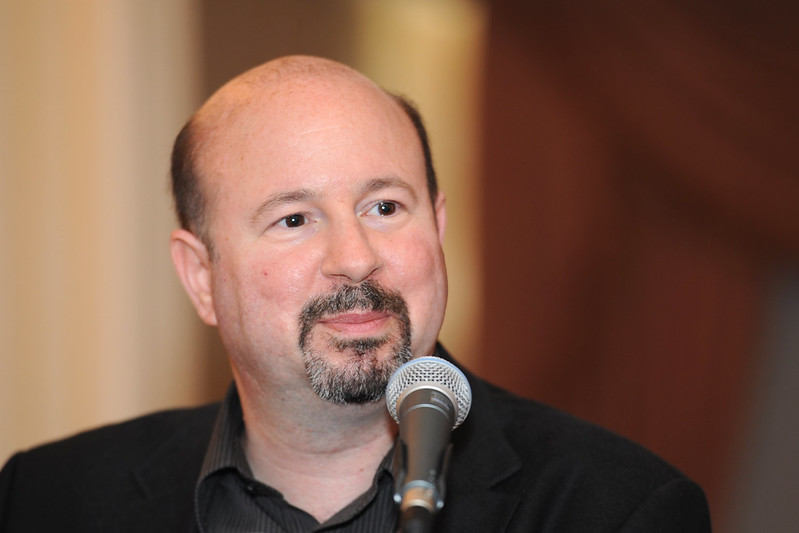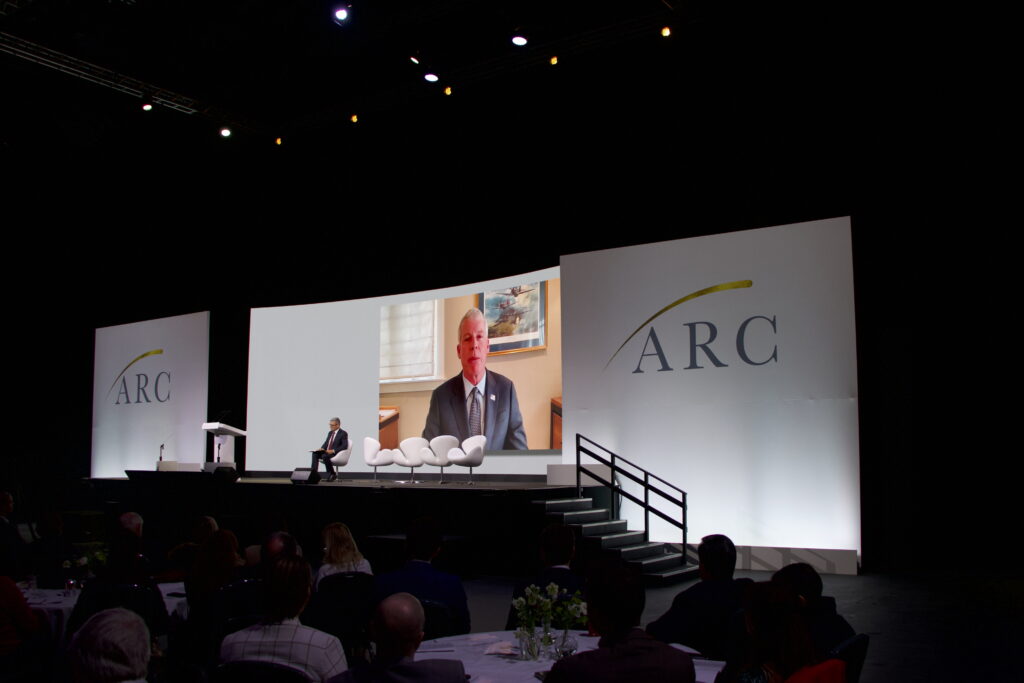A D.C. Superior Court judge recently released a ruling accusing climate scientist Michael Mann and his legal team of deliberately making false statements about Mann’s grant money during the professor’s 2024 defamation trial against two right-wing bloggers — charges the legal team claims are false and unfair.
Now Mann and his lawyers, Peter Fontaine and John Williams, are defending themselves against the judge’s sanctions filed in March, which condemned Mann’s and his lawyers’ behavior during the trial as “an affront to the Court’s authority,” and “bad-faith trial misconduct.”
Despite Judge Alfred Irving’s recent order, the trial had ended with a jury awarding Mann $1 million in punitive damages. But additional rulings from Irving from January to March reduced that damages award to just $5,000, and ordered Mann to pay half a million dollars in legal fees, the latest in a line of rulings against Mann throughout the trial.
Mann and his legal team filed court documents April 8 asking Judge Irving of D.C. Superior Court to reconsider the sanctions he ordered against them. As far as the data errors, they claim they were using exhibits to show an accurate list of unfunded grants, not for the incorrect amounts of awarded grants that were listed in the exhibits, and that the judge erroneously found that Mann’s legal team had intentionally provided false evidence.
“Neither Mr. Fontaine nor I ever denied that the grant amounts [presented at trial] differed,” Mann’s lawyer, John Williams, of Harty Williams, claimed in the court filings. “Indeed, the very reason the grant amounts differed in the first place was because we caught errors — and tried to correct them.”
Fontaine’s statement also rejects Judge Irving’s claims of bad faith, saying that neither lawyer had “any intention to deceive” the court or the jury. “Evidence of a decline in grant funding post-publication was a proxy for injury to Dr. Mann’s reputation, not evidence of pecuniary loss, as grants go to the institution, not to the scientist,” Fontaine, from Cozen O’Connor, stated.
Subscribe to our newsletter
Stay up to date with DeSmog news and alerts
Early in the litigation, Mann had submitted interrogatory answers detailing his history of obtaining research grants, which he claimed were reduced after bloggers Mark Steyn with National Review and Rand Simberg posted articles in 2012 calling Mann and his climate science research fraudulent and comparing the scientist to a known convicted child molester.
Mann’s initial answers about the grants contained data errors, which the team discovered and corrected well before trial. However, the judge didn’t allow exhibits reflecting the corrected grant amounts to be introduced into evidence for unrelated reasons. So Mann’s attorneys instead had to use exhibits containing the incorrect amounts as an accurate list of the unfunded grants.
Everyone in the courtroom — jury, judge, and litigants — knew Mann’s initial answers were incorrect. In fact, on the stand Mann specifically referred to his mistakes in testimony:
Fontaine: “Dr. Mann, you testified that you went through and made some corrections to the information that had previously been submitted. What was the net effect on the numbers?”
Mann: “I think, in the end, it substantially decreased, the apparent loss of funding. We — because of that — there was that one proposal that was for $9 million, and I believe I said to you guys, that’s misleading, because there wasn’t a $9 million contract coming to Penn State. Penn State’s contract was much smaller than that. We should get the numbers right, even if it actually would make a less compelling case for losing funding.”
Mann’s testimony during the three-week trial was accurate and candid, and there’s nothing in Judge Irving’s order suggesting he testified falsely. But throughout the trial the defense continually demonized the well-known climate scientist. Judge Irving also ruled against Mann and his team several times.
For example, Irving at one point stated that the defendants were entitled to special treatment because the case involved the First Amendment, but the First Amendment does not protect defamatory statements.
When Williams pointed this out during the trial, Judge Irving responded: “I think the slight difference is that the defendants have also argued that their criticisms, their statements are protected under the First Amendment. And so that’s the nuance here that allows them to go a bit afield of where plaintiff is entitled to go. But let’s deal with that once we get closer to . . .”
Williams responded: “I certainly don’t understand the First Amendment — the concept that the First Amendment would permit witnesses to testify on things that they otherwise wouldn’t be entitled to.”
Judge Irving, a President George W. Bush appointee, has been serving in the court since 2008, and is no stranger to controversial rulings. In 2023, the judge notoriously banned testimony from a whole slate of expert witnesses who were going to support claims that cell phones can lead to brain tumors. That ruling in the 22-year-old lawsuit, Murray v Motorola, handed a victory to Motorola and the entire telecom industry in a case the Wall Street Journal estimated would have cost the industry $2 billion.
In 2023, Judge Irving was appointed to serve another 15-year term for the D.C. Superior Court. In January, he announced his retirement as associate judge for the Court and is now being considered for an appointment as senior judge.
Judge Slashes $1 Million Award
Earlier in March, Judge Irving had reduced Mann’s $1 million damages award against Mark Steyn to just $5,000, calling the original sum of $1 million “grossly excessive.”
The judge then ordered Mann to pay more than $530,000 to cover National Review’s legal fees over the 13 years of the lawsuit. The decision was based on statutes intended to protect free speech by shielding critics from overwhelming legal costs.
Although Judge Irving held that the legal team and Mann had engaged in misconduct, he did not charge Mann’s lawyers with any monetary damages (the damage will come to their professional reputations if not overturned). But he did direct that attorneys for Steyn and Simberg could seek fees for time spent on litigating the grant evidence. Steyn asked for approximately $27,000 and Simberg $17,000 for costs and fees, which Mann would be responsible for.
As far as misconduct charges, the Mann team’s April 8 filing says that Mann is not an attorney subject to the Rules of Professional Conduct and should not be held responsible for his attorneys’ conduct when he testified truthfully.
Mann’s triumph at having a jury award him $1 million in damages in the 2024 defamation lawsuit was considered a victory for climate science, and a rebuke of the rise of climate science denial.
“I hope this verdict sends a message that falsely attacking climate scientists is not protected speech,” Mann said in a statement following the verdict. “It’s a good day for science.”
But now Judge Irving’s ruling would hand a victory back to climate deniers, at a time when the Trump administration is gutting climate change science and policy.
“The current Trump administration is engaging in an aggressive effort to defund and marginalize climate science,” said Robert Brulle, professor of climate science and society at Brown University, in an email to DeSmog. “In this atmosphere, attacks on climate science and scientists have increased.”
Brulle thinks Irving’s rulings in the Mann case is are in line with the political trend being set by Trump’s deregulation policies. “Mainstream climate science is now being pushed into a defensive stance to maintain its cultural credibility,” he said.
William J. Murphy with Zuckerman Spaeder in Baltimore is representing Mann, Fontaine, and Williams in this sanctions case, according to court filings. Murphy has decades of experience defending lawyers against lawsuits.
According to the April 8 filings, Judge Irving will now have to decide whether to vacate his ruling of misconduct by Mann and his legal team, reverse the sanctions imposed on Mann, or follow through with his original order.
Subscribe to our newsletter
Stay up to date with DeSmog news and alerts







